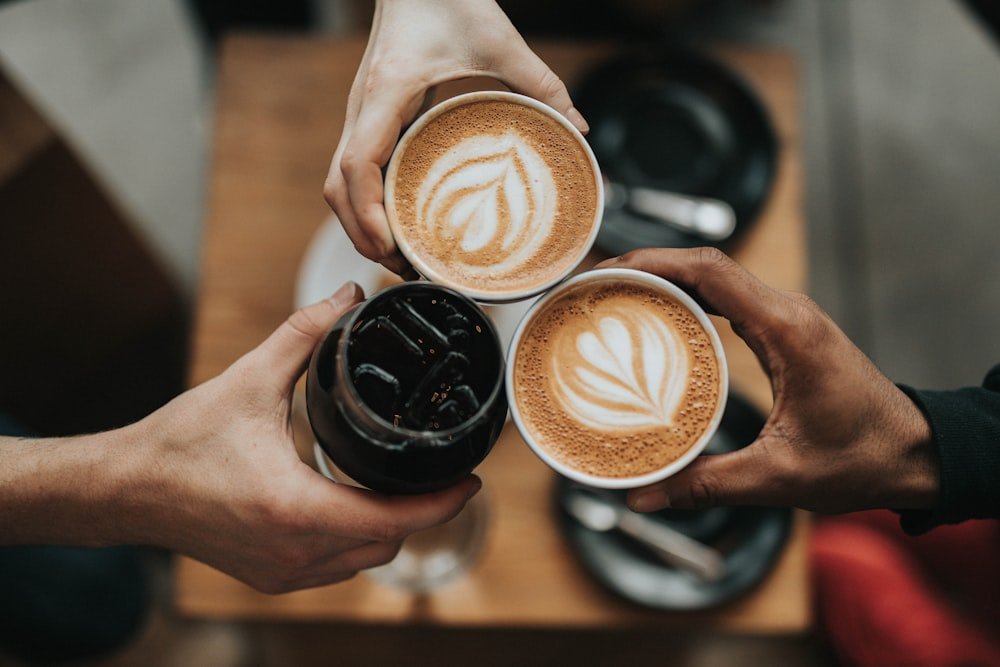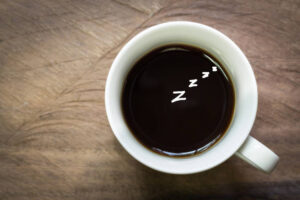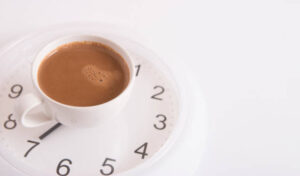It is a common habit to drink coffee, especially in the United States. Over 75% of adults are believed to drink it regularly. Coffee has become a vital component of many people’s morning rituals because of its high caffeine level and other mood-enhancing ingredients. Coffee helps them feel alert and ready for the day.
Even though coffee is known to be a stimulant, some people discover that it doesn’t have the anticipated effect of making them more attentive. This post will discuss ways to counteract the effects of coffee on sleepiness and the possible causes of this phenomenon.

Sleep Deprivation
More than one-third of Americans are sleep-deprived, not meeting the recommended minimum of seven hours of sleep per night. While coffee can offer a quick pick-me-up, it’s not a suitable replacement for sleep. Sleep deprivation can diminish alertness, slow down response times, and impair cognitive function.
Drinking additional coffee in an attempt to combat fatigue may have adverse effects. Excessive caffeine intake can disrupt sleep patterns, resulting in daytime sleepiness. Consequently, relying on coffee to counteract the effects of sleep deprivation can create a detrimental cycle. As fatigue sets in, the consumption of more coffee increases, but this caffeine intake disrupts sleep, exacerbating tiredness over time.
Caffeine Tolerance
Rather than inducing tiredness, it’s possible that coffee isn’t providing the same level of alertness as before.
Initially, caffeine intake can enhance mood, reaction times, and physical performance. However, akin to the development of alcohol tolerance, regular caffeine consumers may develop a tolerance to its effects. Consequently, the same caffeine dose may not yield the same positive effects over time. Relying on increased coffee consumption to regain these effects could negatively impact sleep.
Moreover, consistent caffeine use can lead to withdrawal symptoms within three days of cessation, including heightened feelings of tiredness.
Dehydration
Coffee, recognized as a diuretic, can elevate the frequency of urination and result in fluid loss. If these bathroom breaks disrupt your sleep during the night, you may experience heightened fatigue the following day. Furthermore, mild dehydration induced by increased urination can contribute to feelings of tiredness. Additionally, mild dehydration has been linked to reduced cognitive function, impaired memory, and heightened anxiety and tension.
Individuals who are not regular coffee consumers may be more susceptible to the hydration effects of coffee. Conversely, the impact on hydration may be negligible until a certain caffeine threshold is reached.
Blood Sugar Changes
Drinking coffee in the morning may contribute to insulin resistance and negatively impact your body’s ability to tolerate glucose, making you more sensitive to the sugar or carbohydrates in your drink or breakfast. This can lead to a temporary surge in blood sugar levels, particularly in people with diabetes or prediabetes, which is associated with increased feelings of fatigue, especially in women.
Even if your blood sugar levels don’t reach clinically high levels, you might experience increased tiredness due to low blood sugar after the initial peak. In the hours following sugar consumption, blood sugar levels tend to peak and then dip, affecting your energy levels.
If you suspect you have diabetes or other blood sugar issues, it’s essential to schedule an appointment with your doctor.
Adenosine Levels
When we’re sleep-deprived, our bodies release more adenosine, a chemical that makes us sleepy. Coffee helps us feel alert and less tired by blocking adenosine receptors, preventing it from making us feel sleepy. However, research shows that the body reacts by becoming more sensitive to adenosine. So, when the coffee wears off, we may feel sleepy and tired due to the surge of adenosine.
Caffeine Metabolism
Not everyone processes caffeine the same way. If you metabolize caffeine slowly, it may take longer for you to feel alert after drinking coffee. On the other hand, if you metabolize caffeine quickly, it may not affect you as strongly or the effects may wear off faster, making you feel sleepy sooner.
Several factors influence how fast someone metabolizes caffeine. Smoking speeds up caffeine metabolism, while conditions like pregnancy or liver disease can slow it down.
Genetics
While further research is necessary, scientists have discovered that genetics play a role in how someone reacts to caffeine. Certain genes might make you more susceptible to the negative effects of caffeine, like anxiety or trouble sleeping. If caffeine affects your sleep in a bad way, you could feel more tired during the day.
How to Maximize the Benefits of Coffee to be less tired
You can take several steps to assist you optimize coffee’s positive effects while reducing any potential drawbacks.
Get Enough Sleep
While coffee can make you feel more awake, it doesn’t improve higher cognitive functions much, and it won’t hide your sleepiness forever. If you still feel tired even after drinking coffee, you might not be getting enough sleep. Try to sleep longer or check if your sleep quality is good, even if you spend a lot of time in bed.
Drink Coffee Strategically
Research indicates that drinking coffee up to six hours before bedtime can disrupt sleep patterns. To promote better sleep, it’s advisable to limit coffee intake to the morning and opt for sleep-friendly foods in the evening. The U.S. Food & Drug Administration advises a maximum daily caffeine intake of 400 milligrams, which is roughly equivalent to four cups of coffee. Since caffeine sensitivity varies among individuals, cutting back on coffee may be beneficial if you experience adverse effects from caffeine consumption.






